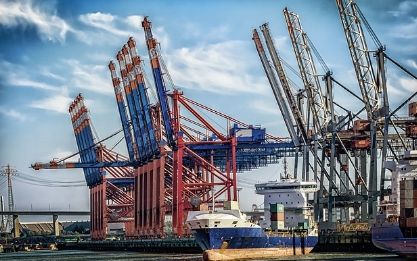What is Border Control and How Does It Impact International Trade and Security?
Border control refers to the measures and policies implemented by a country to regulate and monitor its borders. This encompasses the control of the movement of people, goods, and animals across a country's borders, aiming to enhance national security, manage immigration, prevent illegal trafficking, and facilitate legitimate international trade. This article explores the significance of border control, its components, and its implications for global commerce and security.

Understanding Border Control
Border control involves various security and administrative measures to ensure that entry and exit across a country’s borders are regulated according to national and international laws. It is a critical aspect of a country's sovereignty and national security strategy, involving customs, immigration, and security agencies.
Key Components of Border Control
1. Customs Control: Ensures that goods entering or leaving a country comply with local customs regulations, including the payment of necessary tariffs and adherence to trade policies.
2. Immigration Control: Manages the movement of people across borders, verifying identities, and ensuring that individuals meet the requirements for entry or exit.
3. Security Screening: Involves checking individuals and cargo for prohibited items, such as weapons, drugs, and other contraband.
4. Health Inspections: Especially critical in times of global health crises, health inspections at borders help prevent the spread of diseases by screening travelers and goods.
5. Quarantine Services: Control the movement of animals and plants across borders to prevent the spread of pests and diseases.
Importance of Border Control
• National Security: Protects a country’s internal security by preventing the entry of potential threats and combating terrorism and organized crime.
• Economic Security: Safeguards the economy by regulating the import and export of goods, collecting customs duties, and preventing illegal trade.
• Public Health: Helps in controlling the spread of infectious diseases by monitoring the movement of people and goods into the country.
• Environmental Protection: Prevents the illegal transport of endangered species and hazardous materials that could harm the ecosystem.
Impact of Border Control on International Trade
• Trade Facilitation: Efficient border control procedures can reduce transit times and costs, promoting smoother international trade.
• Regulatory Compliance: Ensures that all traded goods comply with both domestic and international trade regulations, maintaining fair practices.
• Trade Barriers: Stringent border controls can act as non-tariff barriers to trade, potentially impeding the free flow of goods and affecting market access.
Challenges in Border Control
• Balancing Security and Efficiency: Ensuring robust security without causing significant delays in the movement of people and goods can be challenging.
• Resource Allocation: Effective border control requires significant resources, including staffing, technology, and infrastructure, which may be in limited supply.
• International Cooperation: Coordinating with other countries and international bodies is essential for effective border management, particularly in matters of security and public health.
Best Practices for Effective Border Control
• Advanced Technology: Implementing advanced technologies such as biometric verification, automated passport controls, and sophisticated scanning equipment to enhance both security and processing speeds.
• Comprehensive Training: Providing continuous training for border control staff on the latest practices and technologies.
• International Collaboration: Engaging in partnerships and agreements with neighboring countries and international organizations to share intelligence and best practices.
• Streamlined Procedures: Developing streamlined procedures for customs and immigration to facilitate trade and travel without compromising security.
Conclusion
Border control is a critical element of national security and international trade regulation, playing a pivotal role in a country’s economic and security strategies. Effective border control measures enhance a country's ability to safeguard its interests while facilitating legitimate trade and travel, contributing to global economic stability and security. As international trade and travel continue to grow, evolving border control strategies will be crucial for maintaining these balances.
Related articles

 WeChat of CBiBank
WeChat of CBiBank